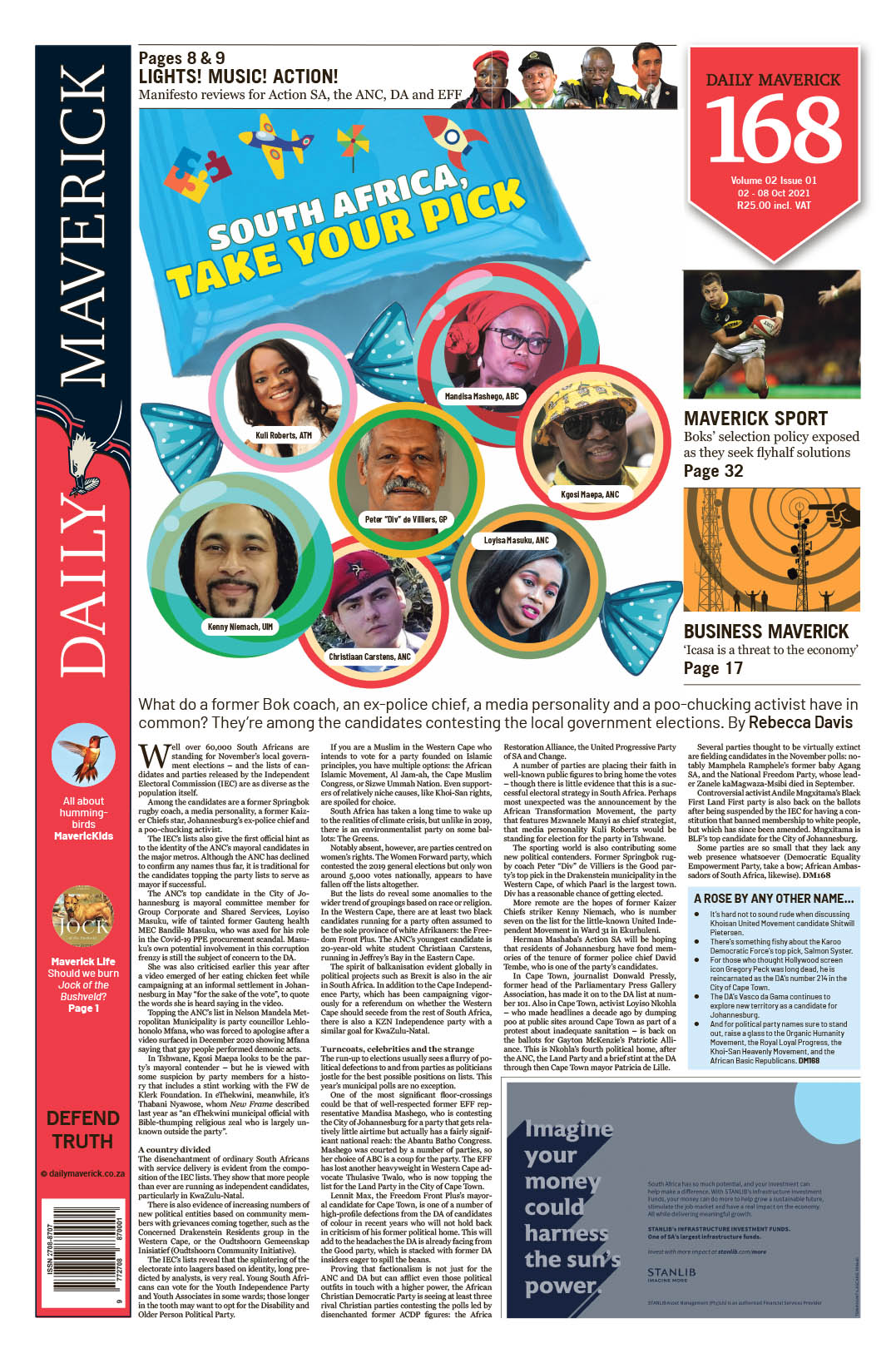First published in the Daily Maverick 168 weekly newspaper.
My first experience of gender-based violence was when I was seven years old. A male family friend slapped his girlfriend in full view of a crowd of people – and nobody did or said anything. In fact, everyone went about their business as though nothing had happened.
The moment was baffling because I knew violence of any kind was not right and had to be rebuked, yet all around everyone continued as normal. Within a few hours, the couple were laughing and seemed happy again, as though the incident had never taken place.
I remember an instance when, as a young twentysomething, I was at dinner with a co-ed group of friends and a male friend made a joke to the other males in the group along the lines of: “If your girlfriend steps out of line, all you need to do is just give her a slap to set her straight.”
I was horrified and when I expressed that, I got laughter as a response from those at the table, who said I should calm down, he was just joking.
But is violence mundane or funny in the context of the untenable numbers of battered and dead women at the hands of the men in their lives?
Growing up, we were taught that when a little boy pulls a little girl’s hair, pushes her or twists her arm, it means he likes her and her telling him to stop it is irrelevant. In fact, we were told that we should be flattered, that he is “taking an interest” in us. So can we really be surprised when these little boys then become men who use force and coercion to assert themselves and get what they have been taught is theirs to take, like girls who then become women? How do you suddenly unteach years of societal conditioning?
There is also the false romantic narrative that has been peddled – and was particularly strong in romantic movies up until the mid-2000s – that all a man needs to do when he sets his sights sexually on a woman is to persevere and try harder, despite her rebuffing his advances. The idea here is that, eventually, he will wear down the woman and finally get his chance at being with her.
This idea of sexual advances is probably one of the main reasons that most women’s first sexual experiences are painful, because they are not ready but are simply “giving in” to the persistence of the man. For men, not “getting the girl” and having her submit to their coercion is intimately tied to their masculinity and sense of worth among their peers and society in general.
We also live in a society where women are often economically dependent on men for their survival and, as a result, become vulnerable to acts of violence.
What is cruel here is society’s glib dismissal of this by saying a woman must leave or find a job so she stops being a dependant. But this does not address the violent behaviour. Instead, it almost justifies the behaviour that, by virtue of being in a position of power, you are entitled to acts of abuse.
All of these instances I have described groom young girls into accepting that life is about doing the best you can to avoid incurring the wrath of a man and that your survival is tied to the elevation of their masculinity.
What is interesting is that none of the men in these instances would consider themselves to be a part of rape culture or abusive towards women.
This week famed R&B singer R Kelly was convicted on multiple charges including the sexual coercion and rape of women and girls. The interesting thing about the R Kelly story is that people found themselves unable to condemn the man for his sexual deviance and abusive actions because he is considered one of the world’s great modern musical talents. So what does this mean?
It means that people are conflating talent with the man and therefore find themselves at odds with their own values. Here is a man who is talented and financially successful. Many aspire to the sexual conquests he describes in his songs and are willing to overlook his abuse as a result.
When the #MuteRKelly movement started advocating that people not buy or listen to his music, people were more concerned about no longer being able to listen to I Believe I Can Fly to motivate themselves or Step in the Name of Love at parties and weddings than the impact the abuse had on the lives of the women and young girls he violated. People felt angry that these women coming forward meant they would be denied a musical icon.
Gender-based violence is often discussed in extremes and is highlighted as being perpetrated by “monsters” who live on the fringes of society – and yet it finds its greatest prevalence in the seemingly mundane. The difficulty in tackling it comes from us being scared to honestly self-examine and see what patterns we are perpetuating and passing on to our children.
So the next time a little boy pushes a little girl, ours is not to laugh off the behaviour but to mitigate against a violent future. DM168
This story first appeared in our weekly Daily Maverick 168 newspaper which is available for R25 at Pick n Pay, Exclusive Books and airport bookstores. For your nearest stockist, please click here.


















 Become an Insider
Become an Insider
Thank you. This is an important article.